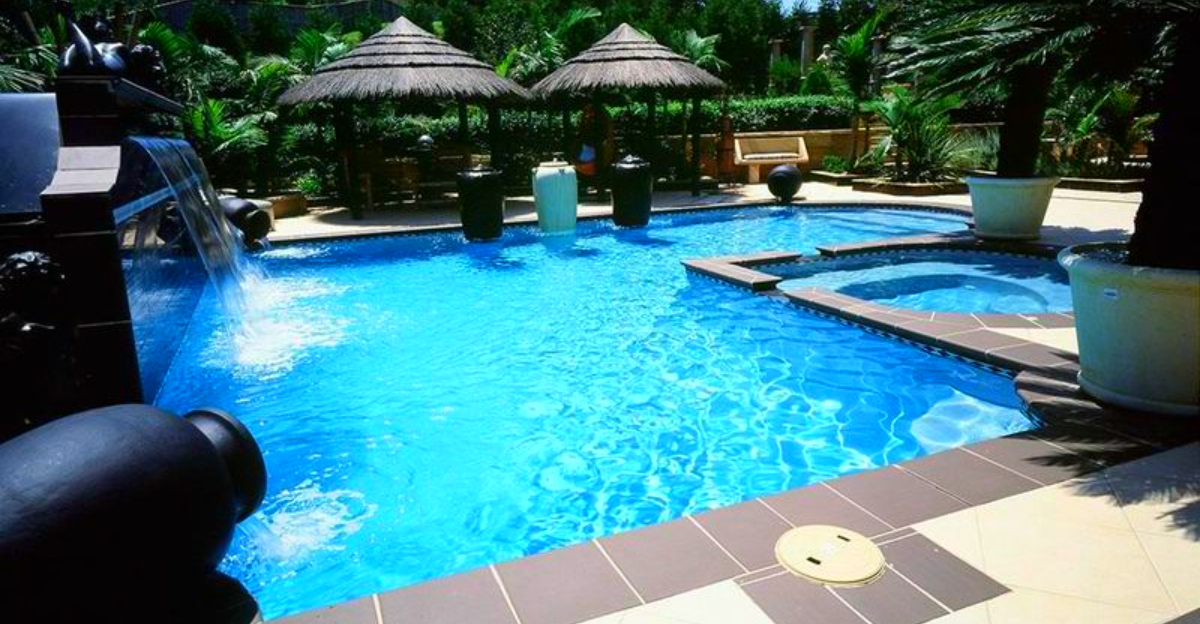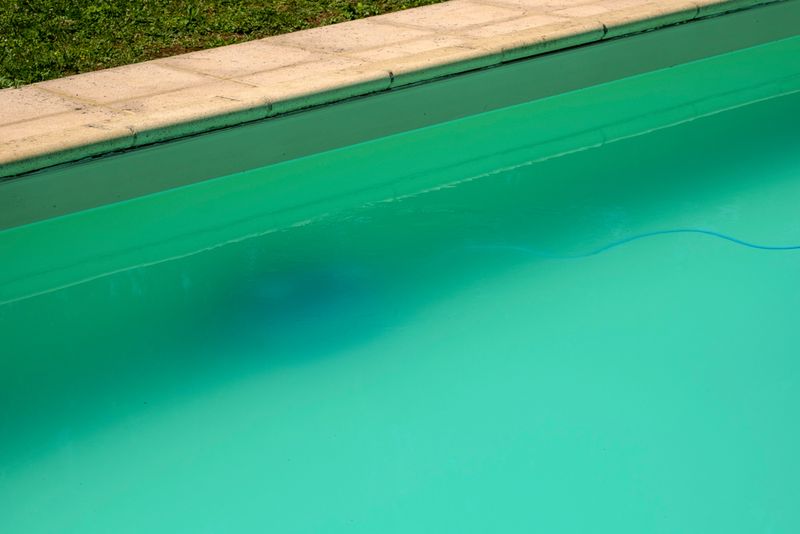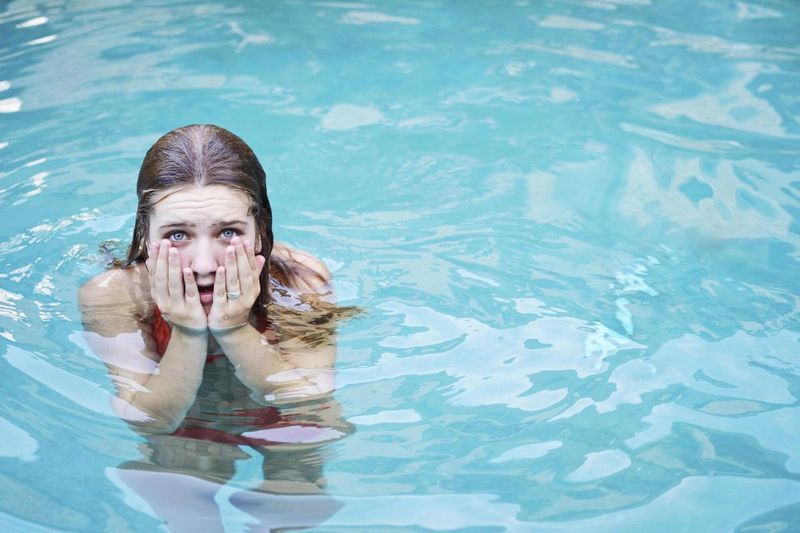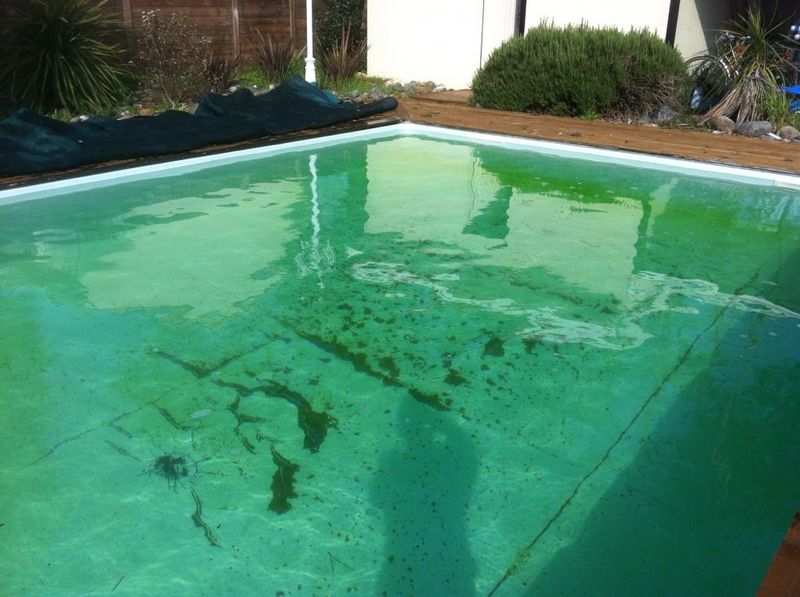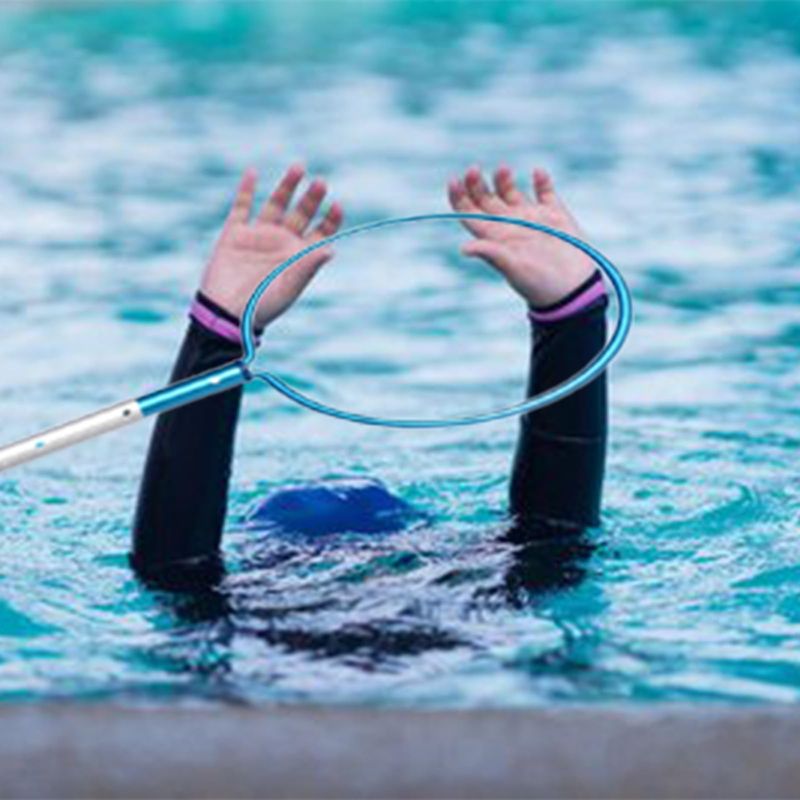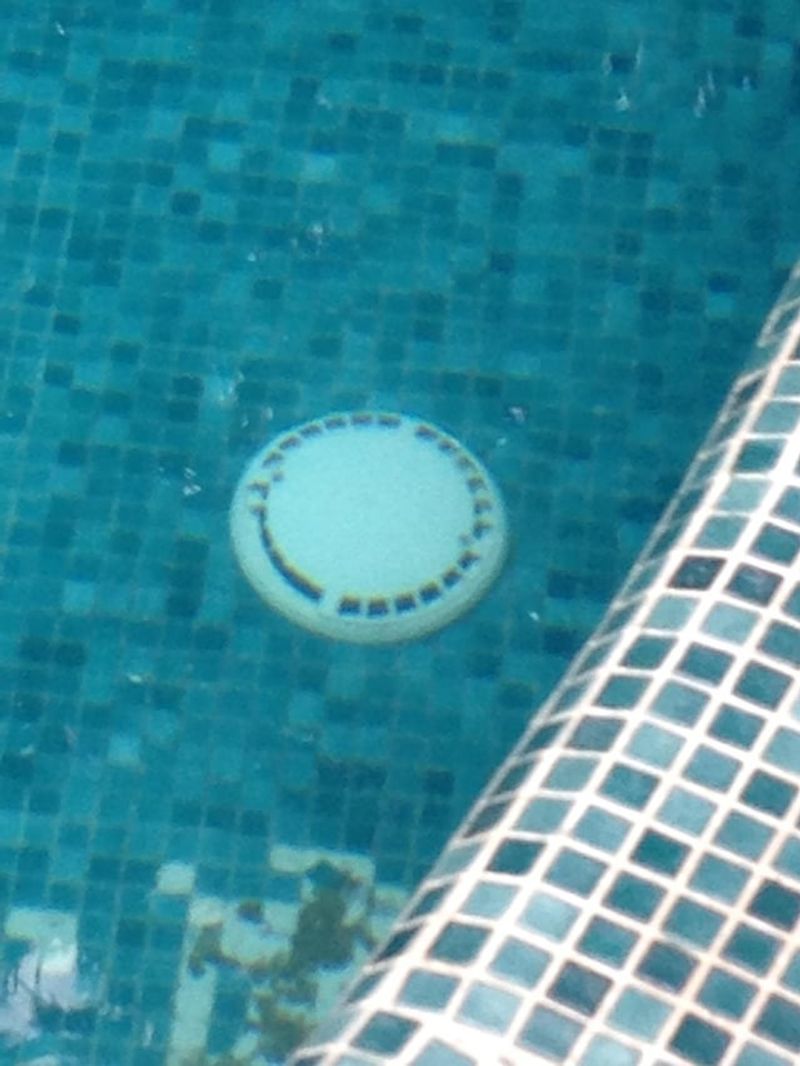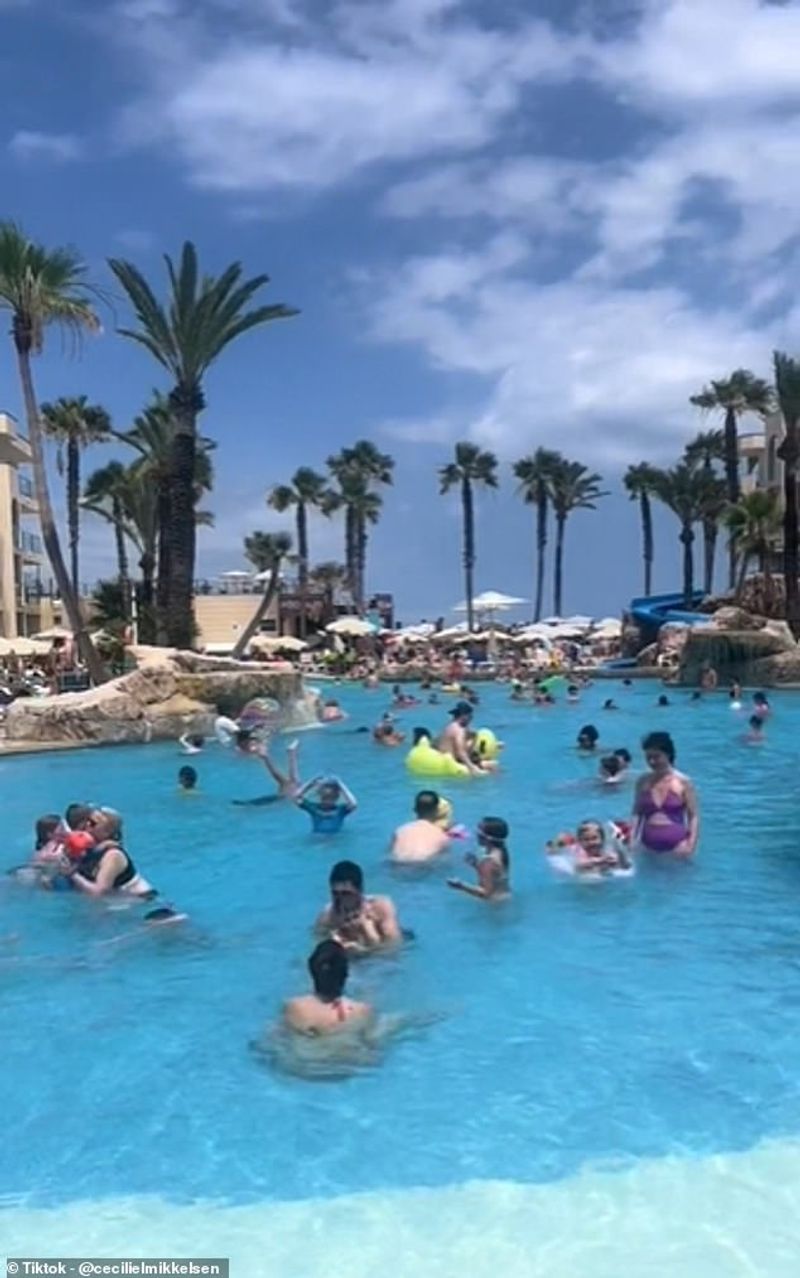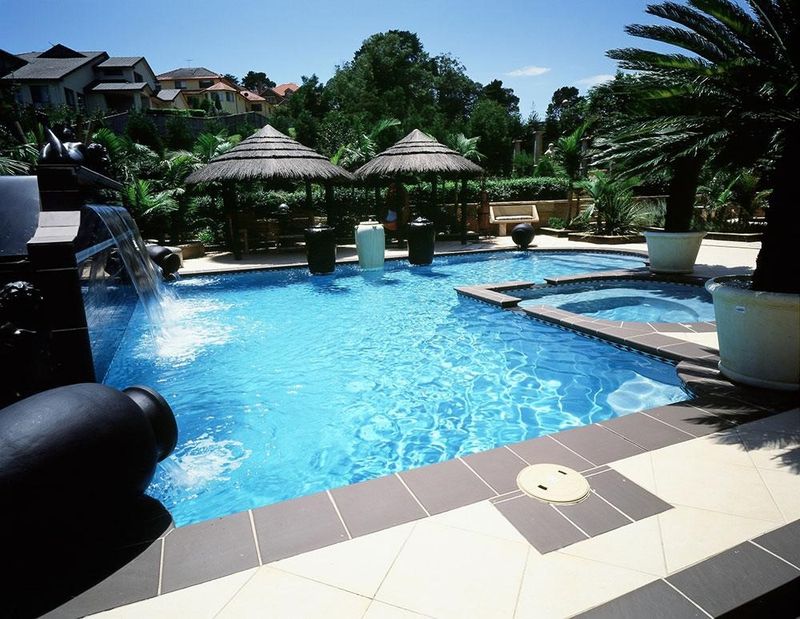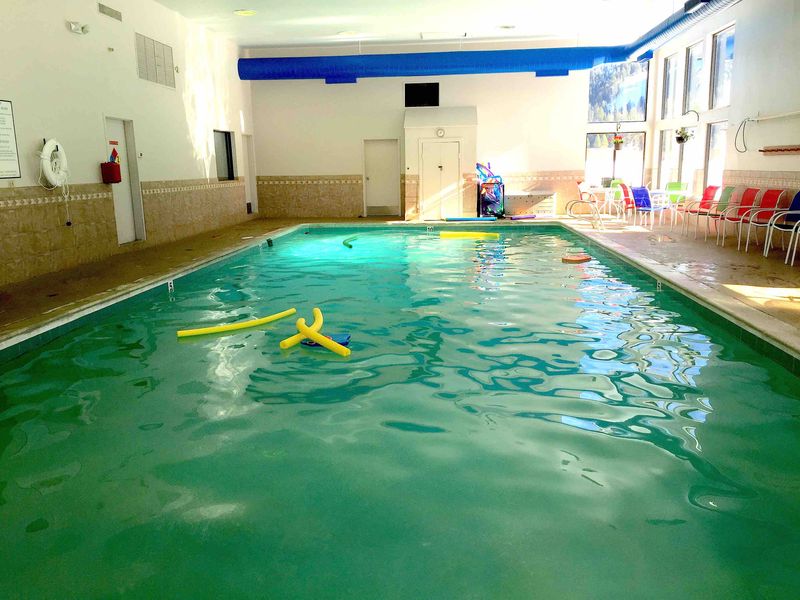Nothing ruins a vacation faster than getting sick from a contaminated hotel pool. Many travelers assume all hotel pools meet safety standards, but that’s not always the case. Knowing what to look for can protect you and your family from waterborne illnesses, injuries, and other health risks during your stay.
1. Cloudy or Murky Water
Crystal clear water should be your first checkpoint when approaching any hotel pool. When you can’t see the bottom clearly, it signals serious filtration problems or dangerous bacterial buildup lurking beneath the surface.
Properly maintained pools have transparent water that allows you to spot a dropped coin on the deep end floor. Murky conditions make it impossible to see swimmers in distress, creating additional safety hazards beyond just water quality concerns.
2. Overwhelming Chemical Odor
That sharp, nose-burning smell isn’t actually a sign of cleanliness like many people think. A well-balanced pool should have only a faint chlorine scent that doesn’t assault your senses when you walk nearby.
Strong chemical odors indicate chlorine is actively fighting contaminants like sweat, urine, and bacteria. This reaction creates chloramines, which can cause painful eye irritation, skin rashes, and respiratory problems, especially for children and sensitive individuals.
3. Slimy Pool Surfaces
Run your hand along the pool tiles, ladder, or handrails before getting in. Slippery, slimy textures indicate algae growth and inadequate cleaning protocols that put your health at risk.
Clean pools have smooth, grippy surfaces that feel safe underfoot. Algae creates dangerous slip hazards and harbors harmful bacteria that can cause ear infections, skin irritations, and gastrointestinal illness. Green or black patches on walls are immediate red flags.
4. Missing Safety Equipment
Every pool area should display life rings, reaching poles, and clearly marked first aid stations within easy access. Missing or damaged safety equipment suggests the hotel doesn’t prioritize guest welfare.
Professional establishments maintain emergency tools in visible locations and replace broken items immediately. Check for posted emergency phone numbers and ensure staff members are present during pool hours. Absent safety measures can turn minor incidents into tragic accidents.
5. Broken Drain Covers
Pool drains create powerful suction that can trap swimmers underwater, leading to serious injuries or drowning. Cracked, missing, or loose drain covers are extremely dangerous and require immediate attention from hotel management.
Inspect drain covers before allowing children near the pool area. Modern safety covers should be securely fastened and show no signs of damage or wear. Report any issues immediately and avoid swimming until repairs are completed by qualified professionals.
6. Overcrowded Without Supervision
Packed pools without lifeguards or attentive staff create chaotic environments where accidents happen quickly. Overcrowding also increases contamination risks as filtration systems struggle to handle the additional bather load.
Quality hotels limit pool capacity and maintain adequate supervision during busy periods. Look for posted occupancy limits and active staff monitoring. If the pool feels uncomfortably crowded or lacks oversight, consider returning during off-peak hours for safer swimming conditions.
7. Unusual Water Temperature
Water that feels unusually warm creates perfect breeding conditions for harmful bacteria and parasites. Excessively cold pools often indicate heating system failures or poor maintenance practices that affect water quality.
Ideal pool temperatures range between 78-82 degrees Fahrenheit for comfortable, safe swimming. Hot tub-like temperatures in regular pools signal potential health hazards, while frigid water suggests neglected equipment. Trust your instincts if something feels off about the water temperature.
8. Hidden Maintenance Records
Reputable hotels proudly display current health inspection certificates and maintenance logs near pool entrances. Missing documentation suggests the facility may not meet safety standards or undergo regular professional monitoring.
Ask front desk staff about recent inspections if certificates aren’t visible. Legitimate establishments welcome transparency about their pool maintenance practices. Reluctance to share this information or expired certificates should raise serious concerns about water quality and overall safety protocols.
